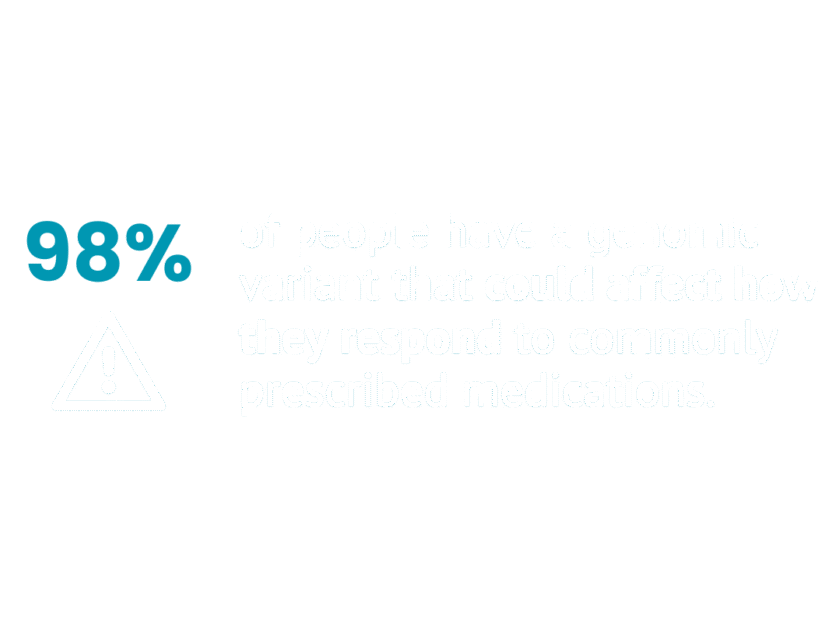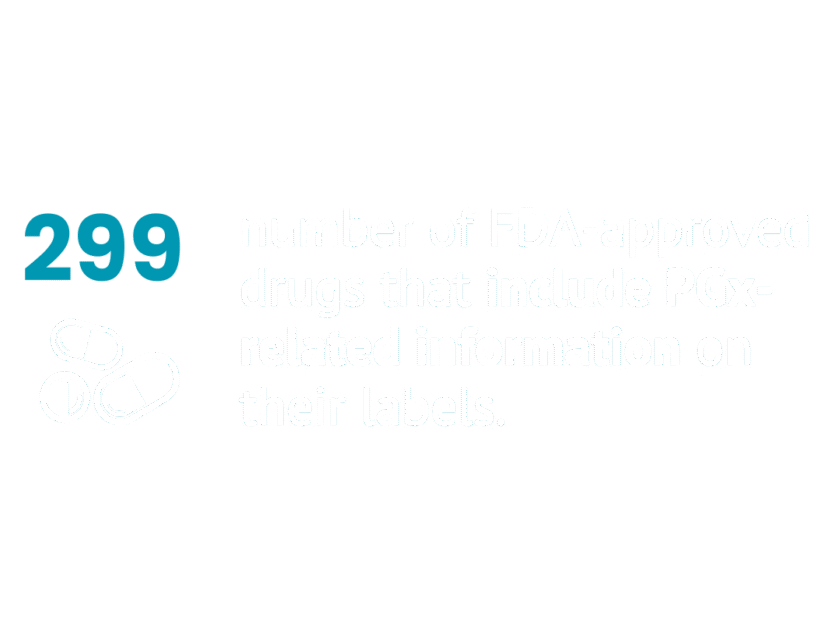
About the Program
Pharmacogenomics (PGx) is the study of how genes affect the way people respond to certain medications. Many studies have shown that the effectiveness and risk of side effects of drug treatment can be influenced by genetic variants. These variants can affect how quickly a drug is metabolized, how well it is absorbed, and how it interacts with the body’s cells and systems. Genetic testing can help guide physicians in selecting the best medications for each individual. The future of medicine is personal!

Why PGx Matters
Annual impact of adverse drug events (ADEs)
2.2 million
hospital admissions
$1.36 billion
in healthcare costs
4th leading cause of death for Americans
Over 50% of people are on a prescription drug that is either ineffective or causes side effects. A study of over 6,000 patients found that ADE’s were reduced by around 30% when certain prescriptions were informed by Pharmacogenomics (PGx) test results.
Average cost savings to health plans from running a PGx-informed comprehensive medication management program:
$218.82 per member per month.



Percent of Population in Which a Given Drug is Ineffective
cancer drugs
Alzheimer's drugs
Diabetes drugs
Arthritis drugs
asthma drugs
anti-depressants (SSRIs)
The AdvancedGx Difference
Claims Data & Analytics
Unlike other PGx labs, we do more than just collect samples and produce PGx reports. The power of the AdvancedGx program is driven by our exclusive Claims Data & Analytics tools.
Our Population Analysis tool helps determine whether a given Health Plan population is a good fit for a PGx program, and our proprietary Risk Ranking algorithm identifies the individuals in that population who are most likely to benefit from PGx testing.

Communication & Education
Our patient and practitioner outreach in the areas of communication and education is where the AdvancedGx program shines, and what truly sets us apart from other PGx labs. Our dedicated team engages with patients to help drive program participation.
In addition to the full gene-drug reports, our pharmacists create a unique, easy-to-understand, actionable report just for practitioners, enabling them to review and implement these PGx-guided recommendations.
Looking to the Future
Our back-end analytics can provide retrospective analyses of Claims Data, which combined with ongoing Population Monitoring helps our partners realize where change has happened, recognize savings, and strive for continual improvement.
Participants in the AdvancedGX program also get a one-on-one pharmacist consultation to review their results, empowering them to be stewards of their own health. Our genes don't change — AdvancedGX is a health tool for life.
Advanced Lab can also offer custom PGx panel development - contact us to learn more.
Key References
1. Pritchard D, Patel JN, Stephens LE, McLeod HL. Comparison of FDA Table of Pharmacogenetic Associations and Clinical Pharmacogenetics Implementation Consortium guidelines. 2022 Jun 7;79(12):993-1005.
2. American Society for Pharmacovigilance. Pharmacovigilance. Retrieved 2023, from https://fourthcause.org
3. Spear BB, Heath-Chiozzi M, Huff J. Clinical application of pharmacogenetics. Trends Mol Med. 2001 May;7(5):201-4.
4. Swen, J. et al. A 12-gene pharmacogenetic panel to prevent adverse drug reactions: an open-label, multicentre, controlled, cluster-randomized crossover implementation study. The Lancet. 2023 Feb 4; 401(10374):347-356
5. Apted T, Huff A. Pharmacogenomics for improved outcomes and decreased costs in health care. AJMC. December 15, 2023. Accessed January 17, 2024.
6. National Human Genome Research Institute. Pharmacogenomics [Internet]. Bethesda (MD): National Human Genome Research Institute. Available from: https://www.genome.gov/about-genomics/educational-resources/fact-sheets/pharmacogenomics
